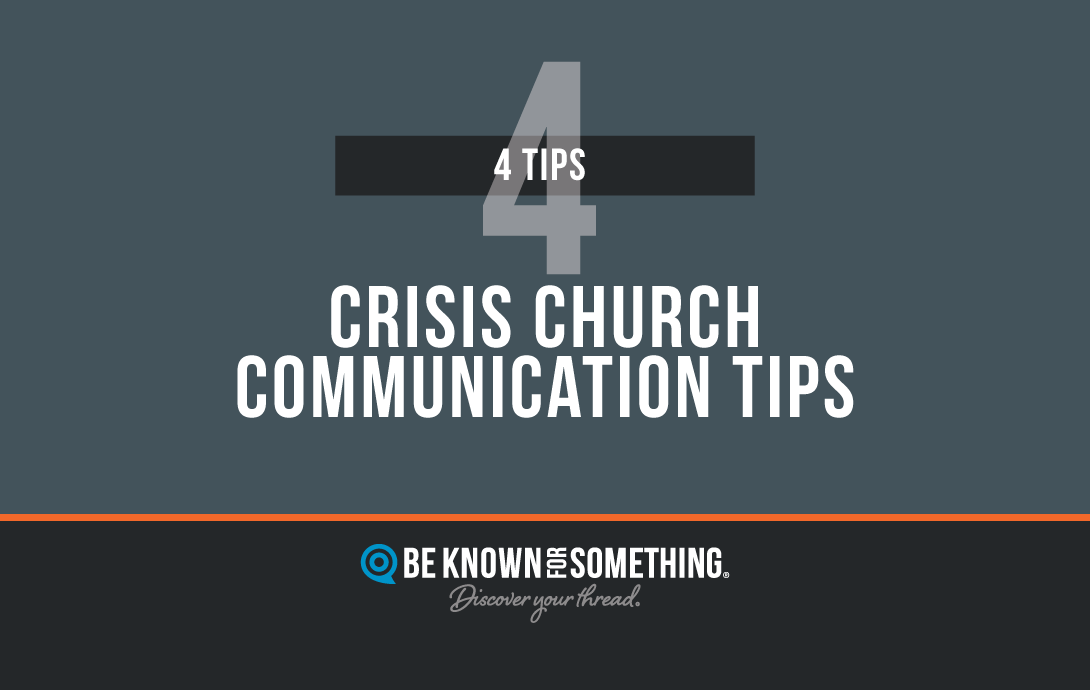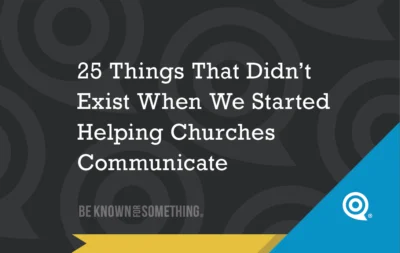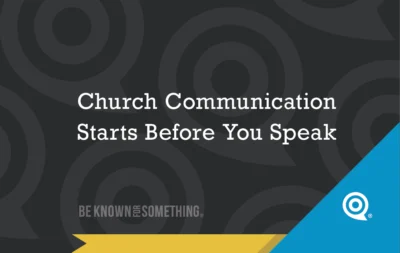Crisis Church Communication (4 Tips for Pastors)

In our ever-changing and sometimes chaotic world, crisis church communication plays a huge role. Whether you’re addressing a crisis within your church or handling challenging situations online, effective communication is essential to maintain trust and unity among your congregation. As a communicator of Truth and the Gospel, here are 4 practical tips to guide you through trying moments.
1) Swift and Transparent Responses
When a crisis occurs, your congregation looks to their leadership for guidance and reassurance. It’s crucial to respond promptly and transparently. Remember, silence fosters uncertainty. Utilize your church website and social media platforms to communicate important updates as quickly as possible. Of course, from the stage is the best communication, but resist waiting for that moment if it would appear to be stalling.
Transparency builds trust. Share the facts as you know them, and if you lack answers, acknowledge it. Being honest about your limitations fosters authenticity. People appreciate transparency, even when the news is difficult to hear.
2) Carefully Craft Empathetic Messages
Crafting messages during a crisis is an art. Start with prayer. Then focus on a lot of empathy. Show you understand the emotional impact of the situation on your congregation. Utilize emails and social media to express compassion and care. Bounce all messaging off a trusted friend to get their outside perspective.
Clearly outline steps your church is taking to address the crisis. Offer practical advice or resources where relevant. Your communication should not only inform but also provide hope and a sense of unity. Remind your congregation that they are not alone in facing the challenge.
3) Encourage Two-Way Communication Carefully
In the era of social media, it’s not merely about broadcasting a message; it’s about engaging in meaningful dialogue. Encourage your congregation to share thoughts and concerns. But be ready to respond to comments and messages promptly, even if it’s just to express gratitude for their support and prayers.
Careful though: online platforms can magnify conflicts. Therefore, monitoring online conversations carefully. During difficult situations, some may voice dissent, criticism, or outrage. Approach such comments with grace and a desire for understanding. Use these moments as opportunities to model Christ-like behavior and encourage respectful dialogue. Your responses demonstrate how your local church handles conflict.
4) Seek Wise Counsel
Remember, you don’t have to navigate crisis challenges alone. Pray for wisdom and seek advice from fellow pastors, mentors, or communication experts within your church community. They can offer valuable insights and support as you navigate difficult situations online. You are not alone.
Consider forming a crisis church communication team within your church BEFORE a crisis happens. Having a dedicated group of individuals trained to handle communication during crises can be a tremendous asset.
As a Pastor and/or communicator, your words and actions have the power to inspire and guide your congregation through even the toughest of times. Stay grounded in your faith, and let your communication reflect the love, grace, and mercy of Christ.
Stay strong and may your online presence continue to be a beacon of Light and the Gospel in our crazy world.
“Humble yourselves, therefore, under the mighty hand of God, so that He may exalt you at the proper time, casting all your cares on Him, because He cares about you. Be sober-minded, be alert.” (1 Peter 6-8a, CSB)

Want 25 Game-Changing Resolutions?
Related Posts

25 Things That Didn’t Exist When We Started Helping Churches Communicate
Back in 2001, we launched Be Known for Something from the old Krispy Kreme test-kitchen and marketing offices in Winston-Salem,

7 Short-Month Church Communication Wins
February is the shortest month of the year, which makes it perfect for simple church communication improvements that don’t require

Church Communication Starts Before You Speak
Church communication does not begin with a sermon. Instead, it begins the moment someone arrives on your property. Before a

